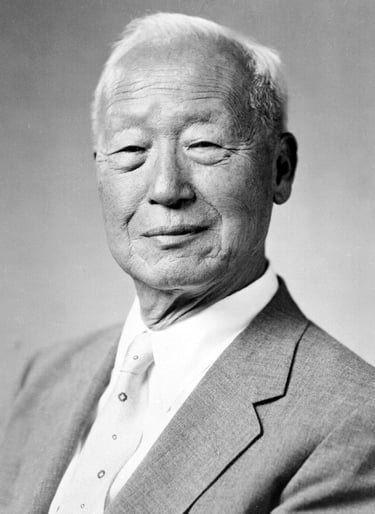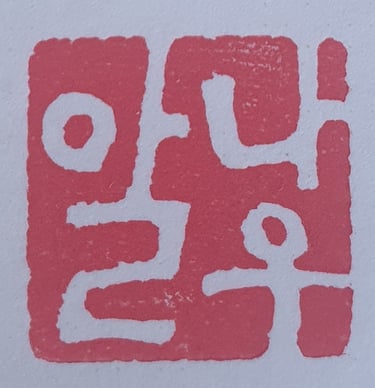Syngman Rhee: First President of South Korea
Photo : https://fr.wikipedia.org/wiki/Syngman_Rhee
Syngman Rhee (이승만, Yi Seung-man), born on March 26, 1875, and died on July 19, 1965, was a central figure in modern Korean history, playing a crucial role in the struggle for Korean independence and becoming the first president of the Republic of Korea (South Korea). This article explores in detail his life, political career, and complex legacy.
Youth and Education
Syngman Rhee was born into a yangban (aristocratic) family in Hwanghae, in what is now North Korea. From an early age, he showed exceptional intellectual abilities and studied at missionary schools where he learned English and embraced Christianity.
In 1904, Rhee left for the United States, where he continued his studies at George Washington University, graduating in 1907. He then attended Harvard University, where he earned a master's degree, and subsequently Princeton University, becoming the first Korean to receive a doctorate in 1910, under the mentorship of Woodrow Wilson, who would later become President of the United States.
Commitment to Independence
During his time in the United States, Rhee actively engaged in the Korean independence movement. After Japan annexed Korea in 1910, he became an influential voice for the Korean cause on the international stage.
Provisional Government in Exile
In 1919, following the March 1st Movement against Japanese occupation, a provisional government of the Republic of Korea was established in Shanghai. Syngman Rhee was elected president of this government in exile. Despite his efforts to gain support from Western powers, he faced obstacles, including a lack of international recognition and internal dissent within the independence movement.
Return to Korea and Founding of the Republic of Korea
With the end of World War II in 1945 and Japan's surrender, Korea was liberated after 35 years of Japanese rule. The peninsula was divided into two occupation zones: Soviet in the north and American in the south.
Rhee returned to Korea in 1945, benefiting from American support. In 1948, he was elected president of the Republic of Korea in the first presidential election, marking the official birth of South Korea.
Presidency
Policies and Governance
Rhee's presidency was marked by strict anti-communist policies and an authoritarian consolidation of power. He implemented severe repression against political opponents, including purges and arrests of communists and sympathizers.
Korean War
On June 25, 1950, the Korean War broke out when North Korean forces invaded the South. Rhee played a crucial role in defending South Korea, obtaining massive support from the United Nations, primarily from the United States. After three years of devastating conflict, an armistice was signed in 1953, establishing the current demarcation line near the 38th parallel.
Elections and Controversies
Rhee was re-elected in 1952, 1956, and 1960, often under controversial circumstances, including allegations of electoral fraud and intimidation. His regime became increasingly authoritarian, provoking growing opposition.
Downfall and Exile
In April 1960, massive protests erupted following legislative elections widely perceived as rigged. Known as the "April Revolution," these protests ultimately led to Rhee's resignation on April 26, 1960. Rhee fled into exile in Hawaii, where he spent the rest of his life until his death in 1965.
Legacy
Syngman Rhee left a complex and controversial legacy. On one hand, he is celebrated as a pioneer of Korean independence and the first president of the Republic of Korea, playing a crucial role in the foundation and defense of the South Korean state. On the other hand, his regime is criticized for its authoritarian methods, repression of political opponents, and human rights violations.
Syngman Rhee remains a key figure in Korean history, whose impact is still debated and studied. His life and career embody the aspirations and struggles of Korea during a tumultuous period marked by colonization, war, and the quest for sovereignty and democracy.



